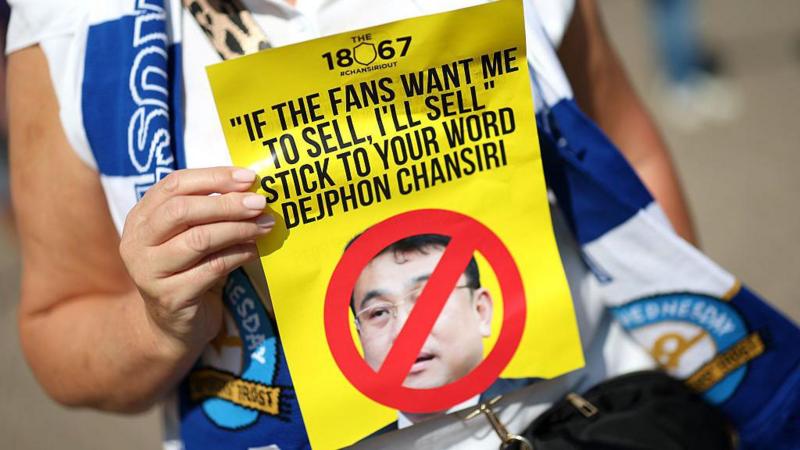Sheffield Wednesday Takeover Turmoil: What's Holding Them Back?




Sheffield Wednesday, the historic football club based in Hillsborough, is currently ensnared in a complex situation as they look for new ownership to steer them back on a prosperous path. Following a tumultuous period marked by financial difficulties and relegation battles, the quest for solidity and success is more urgent than ever. However, the road to securing a new owner is proving full of hurdles.
Founded in 1867, Sheffield Wednesday is one of England's oldest football clubs, boasting a rich heritage and a loyal, passionate fanbase. Despite past glories, including four league titles and three FA Cups, recent years have seen the club facing significant challenges, both on and off the pitch. Financial instability has become a worrying theme, exacerbated by points deductions and relegation to League One after the 2020-2021 season.
The root of Wednesday's current predicament can be largely attributed to financial mismanagement and regulatory penalties. In November 2019, the club was charged with misconduct by the English Football League (EFL) over the sale of their Hillsborough Stadium. It was a controversial deal aimed at avoiding a breach of spending rules, but it instead led to a six-point penalty after an original 12-point deduction was halved on appeal. This point deduction significantly contributed to their relegation.
There is significant interest in taking over the Yorkshire side, with various parties reportedly keen on securing the reins. However, the complexities involved in the takeover are manifold, involving the settlement of existing debts, the EFL's ownership approval processes, and negotiations over the club’s valuation.
One of the major sticking points reportedly stalling progress is the valuation of Hillsborough Stadium itself. Current owner Dejphon Chansiri, who acquired the club in 2015, places high value on the ground – an asset pivotal not just in historical and emotional terms, but also in financial calculations. Prospective buyers, meanwhile, are cautious, wary of overcommitting in a financial climate still recovering from the impacts of the COVID-19 pandemic, which saw revenues plummet as matches were played behind closed doors.
Moreover, the ongoing scrutiny from the EFL adds another layer of complexity to any potential deal. New owners must pass the EFL's Owners’ and Directors’ Test, designed to ensure the club's future stability and integrity under new stewardship. This necessitates thorough checks and can be a lengthy process, potentially dissuading interested parties.
For the fans, the feeling is one of cautious optimism mixed with inevitable anxiety. Supporters are eager to see a resolution that secures the club's future and allows it to rebuild and challenge for a return to the Championship and beyond. Fan forums and social media are abuzz with speculation and hope, with many rallying behind the Owls during this uncertain time. Community trust and backing have never waned, illustrating the deep roots Wednesday holds in the hearts of its supporters.
The importance of community and legacy at Sheffield Wednesday cannot be overstated. It’s a club that represents more than just football; it's about collective identity and local pride. The successful navigation of this takeover is crucial not just for the on-field success but for the survival of a cherished institution within the community.
As Sheffield Wednesday stands at this crossroads, the resolution of its ownership issues will be pivotal in shaping the future. For a club steeped in history and tradition, finding the right custodian who respects its past while securing its future will be key to ensuring that the next chapter in the Hillsborough saga is as glorious as those that preceded it.